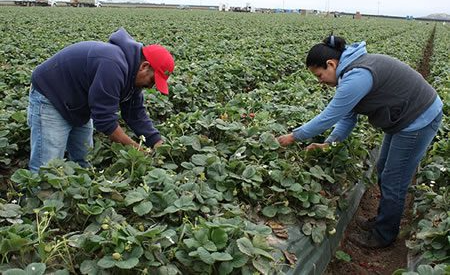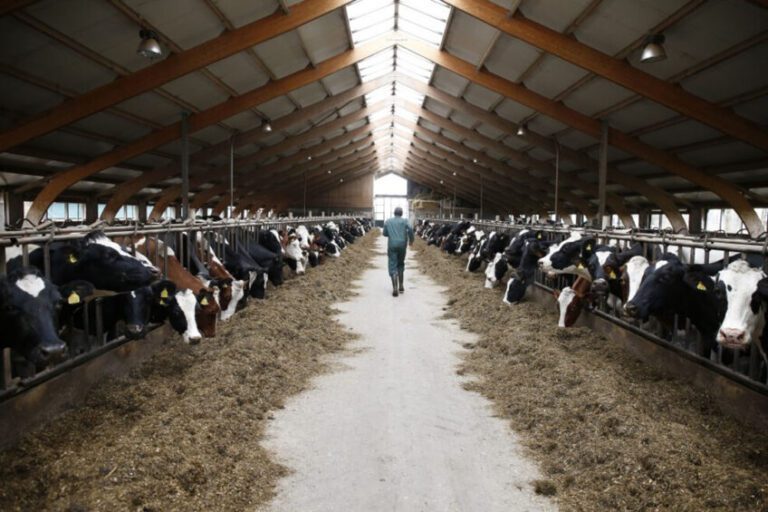
Farm Hand Jobs in Italy: A Comprehensive Guide for Job Seekers in 2025
Farm Hand Job In Italy. Italy, with its rich agricultural heritage, offers a wealth of opportunities for individuals looking to work in the farming industry. Whether you’re an experienced farm worker or someone new to the field, farm hand jobs in Italy can provide rewarding experiences in scenic rural landscapes, offering a unique lifestyle and a chance to immerse yourself in Italian culture. This guide covers everything you need to know about farm hand jobs in Italy, including where to find them, what the job entails, and tips for a successful experience.
Why Work as a Farm Hand in Italy?
Italy’s agricultural sector plays a vital role in the country’s economy. Known for its diverse landscapes, Italy is home to fertile plains, rolling hills, and coastal regions where crops such as olives, grapes, and tomatoes thrive. Working as a farm hand in Italy allows you to:
- Experience Italian Rural Life: Italy’s countryside offers a slower pace of life, and working on a farm is an ideal way to experience the culture, learn the language, and enjoy the beauty of rural Italy.
- Learn New Skills: Whether you’re working with animals or crops, you will develop hands-on knowledge of sustainable farming practices and agricultural techniques that are specific to Italian traditions.
- Enhance Your Resume: Farm work is a great way to gain experience that can be valuable in the global job market, especially in agriculture, horticulture, or sustainable farming sectors.
- Cultural Exchange and Travel: Working as a farm hand in Italy can be a great opportunity for travelers looking to stay longer in the country while gaining insight into Italian life.
Key Responsibilities of a Farm Hand
Farm hand jobs in Italy vary depending on the type of farm, the location, and the season. However, common tasks often include:
- Harvesting: This is one of the most common duties, especially during peak seasons for fruits, vegetables, and crops like grapes or olives. Workers are often involved in picking, sorting, and packing produce.
- Animal Care: Many farms in Italy raise animals such as cattle, sheep, and chickens. Farm hands may be responsible for feeding, cleaning, and maintaining the health of livestock.
- Planting and Maintenance: Depending on the type of farm, planting crops, caring for orchards, weeding, and ensuring that plants are properly irrigated are regular duties.
- General Farm Maintenance: This includes maintaining farm equipment, repairing fences, and ensuring the smooth operation of the farm.
- Assisting with Organic Farming Practices: Many Italian farms focus on organic methods. As a farm hand, you may have the opportunity to work with sustainable farming techniques and learn about eco-friendly practices.
Where to Find Farm Hand Jobs in Italy
- Online Job Portals: Websites like Indeed, Glassdoor, and LinkedIn frequently post farm hand jobs in Italy. You can search for positions based on location, farm type, and job duties.
- WWOOF Italy: World Wide Opportunities on Organic Farms (WWOOF) connects travelers with organic farms across Italy. Volunteers typically receive room and board in exchange for their work on the farm. While this isn’t a paid job, it provides valuable experience and immersion in rural Italian life.
- Local Employment Agencies: Many small towns in Italy have agencies that help connect seasonal workers with local farms. These agencies are especially helpful if you are looking for short-term or seasonal work.
- Farm Websites: Many farms advertise positions directly on their websites. If you are looking for a particular type of farm work, research farms in the region you’re interested in and contact them directly.
- Networking: Sometimes, farm jobs can be found through word of mouth. Visiting farms and talking to locals can open opportunities that may not be advertised online.
How To Apply?
Requirements for Farm Hand Jobs in Italy
While farm hand positions in Italy do not generally require formal qualifications, certain skills and attributes can make your application stand out:
- Work Experience: Previous experience in agriculture, horticulture, or animal husbandry is a big plus, though many farms offer on-the-job training for beginners.
- Physical Stamina: Farm work can be physically demanding, so you should be prepared for long hours and heavy lifting in all types of weather.
- Language Skills: While many Italians speak English, knowing some Italian can be beneficial in understanding instructions and interacting with fellow workers. Basic conversational skills are often enough.
- Seasonal Availability: Many farms operate seasonally, so being available during peak agricultural seasons (such as harvest time in autumn) increases your chances of finding a job.
- Work Visa: Non-EU citizens will need a work visa to legally work in Italy. Citizens of the EU or EEA countries do not need a work visa. It’s important to ensure that you have the proper documentation before applying.
Salary and Benefits
Farm hand jobs in Italy typically pay a modest salary. Salaries can vary depending on the region, the type of farm, and the specific role. On average, a farm hand in Italy earns between €1,200 and €1,800 per month. However, many farms provide additional benefits such as:
- Accommodation: Many farms offer free or subsidized lodging, especially for those working on a seasonal basis. This can help reduce living costs.
- Meals: In exchange for your labor, some farms provide meals or a meal allowance.
- Cultural Experience: Working on a farm in Italy offers unique cultural exchange opportunities, whether you are staying with a family or working with other international travelers.
Best Regions in Italy for Farm Hand Jobs
Italy has a wide range of farming areas that offer different types of agricultural work. Here are some of the top regions to consider:
- Tuscany: Famous for its rolling hills and vineyards, Tuscany is a popular location for farm hands, especially those interested in grape harvesting or olive oil production.
- Sicily: Sicily’s fertile soil produces citrus fruits, tomatoes, and grapes. It’s a hotspot for farm workers looking for opportunities in fruit and vegetable production.
- Puglia: Known for its olive groves, Puglia is another excellent destination for farm hands looking to gain experience in agriculture.
- Lazio: The Lazio region, home to Rome, offers a range of farming opportunities, particularly in the areas surrounding the city.
- Umbria: This central Italian region is known for its lush green landscapes and is a great place for those seeking work on small, family-run farms.
Tips for a Successful Farm Hand Experience in Italy
- Be Prepared for the Physical Demands: Working on a farm can be exhausting, so make sure you are physically fit and ready for long hours of labor.
- Stay Open-Minded and Adaptable: Italian farm life can be quite different from what you’re used to. Stay flexible, and be ready to adapt to the rhythm of rural living.
- Immerse Yourself in the Culture: Take the opportunity to learn the local language, enjoy the local cuisine, and engage with the community. The experience is about more than just work—it’s about the lifestyle.
- Understand the Seasonal Nature of the Work: Many farm jobs are seasonal, so plan your stay accordingly. Be aware of the start and end times for harvesting seasons and how this may affect the availability of work.
Conclusion
Farm hand jobs in Italy offer an exciting opportunity to work in one of the world’s most beautiful and historically rich countries. Whether you’re looking for a short-term adventure or seeking long-term employment, the agricultural industry in Italy has something to offer. With the right preparation and a love for nature, you can enjoy the unique experience of working on a farm while immersing yourself in the Italian way of life. So pack your bags, and get ready to live the dream of working in Italy’s picturesque countryside!






